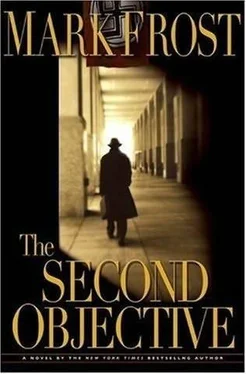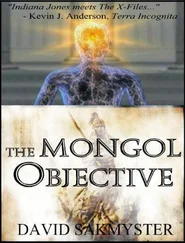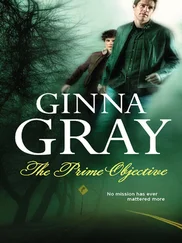“Clear this bridge, god damn it!”
The MPs waded into traffic and cleared a path for him. Soldiers riding into the village shouted at Grannit that he didn’t want to head that way. Paratroopers had taken the towns to the east, and columns of panzers were coming up behind them.
As their jeep cleared the outskirts of town, Bernie steered onto the shoulder. American military vehicles crowded the westbound side of the road, carrying soldiers on hoods of jeeps and hanging off the sides of trucks. The men wore the haunted look of battle fatigue and many were wounded. Bernie could hear the boom of artillery and the rattle of small arms to the east. Von Leinsdorf lit a cigarette and couldn’t keep a smile off his face.
“Quite a sight, Brooklyn,” said Von Leinsdorf. “Your amateur American Army. What did I tell you? Retreat’s too dignified a word-they’re bugging out after only four hours.”
Bernie didn’t respond, alarmed by an image he was picking up in the rearview mirror.
The moment the MPs opened a path, Grannit muscled the bike across the bridge, accelerating through the gearbox as he roared past the retreating American column. He caught sight of the jeep again, at the top of a rise less than a mile ahead, where the road headed into a stretch of gently rolling hills. He tried to coax more speed out of the jeep as they crested another hill.
“Somebody’s following us,” he said.
Von Leinsdorf looked back and saw the motorcycle clear the hill behind them. He picked up his rifle. When they reached the top of the next rise, the bike had closed the gap to less than half a mile.
“Who is it?” asked Bernie.
“I don’t know. Maybe we forgot to pay our bill at the hospital,” said Von Leinsdorf, screwing a telescopic sight onto the rifle. “Pull over at the bottom of the next hill.”
When they reached the base of the hill, Bernie pulled off the road onto a hidden drive that led to a farm house in a stand of pines. Once they were out of sight, he cut the engine. Dust settled. Over the country silence, they could hear the buzz of the approaching motorcycle. Von Leinsdorf steadied the barrel of the rifle on the back of the windscreen and waited. The buzz grew louder. He looked down the sight, settling the crosshairs on the peak of the hill.
Bernie swiveled around when he heard a clatter of breaking dishes from inside the farm house. The face of a GI appeared in a window, then the door swung open; a group of six young soldiers hurried toward them.
“Jesus Christ, get out of sight,” said one of them. “What the hell are you doing?”
Von Leinsdorf took his eye off the sight and looked over, annoyed.
“They’re right on top of us, get out of sight!”
A rumble shook the earth, along with it the high-pitched whine of steel grating on steel. On the far side of the woods to the east three Panther tanks appeared and wheeled to a stop on the summit of the next hill, straddling the road. Walking alongside and behind them, in skirmish formation, were a column of black-jacketed soldiers. On their collars Bernie saw the double-lightning insignia of the SS Panzergrenadiers .
Aboard the bike, Grannit hit the top of the incoming hill and skidded to a halt when he saw the tanks astride the next rise, a quarter of a mile in front of him. Behind them, stretching as far as he could see, was a solid column of soldiers, mounted artillery, and half-tracks filled with infantry. In a hollow below and to the right he spotted the jeep he’d been chasing. A squad of GIs was trotting toward it from a nearby stone farm house.
Von Leinsdorf found Earl Grannit in his sights as he crested the hill, and nestled him right in the center of the crosshairs. As he was about to fire, Bernie grabbed the barrel, yanking it off target.
“I think that’s one of ours, Lieutenant,” he said, for the benefit of the approaching GIs.
Von Leinsdorf glared at him but didn’t respond. Bernie refused to let go of the rifle.
“You don’t want the Krauts to know we’re down here, do you?”
The soldiers from the farm house reached the side of their jeep. They were all Bernie’s age or younger, frightened and confused.
“You got to get us out of here,” one of them said.
“Who the fuck are you?” snapped Von Leinsdorf.
“Rifle company, 99th Infantry,” said their sergeant. “We were mining a logging road near the Skyline Drive. Krauts started coming out of the woodwork. Our jeep got hit. We’ve been dodging ’em for hours, trying to get back to our line.”
“They’re all over the fuckin’ place,” said another. “What the hell are we supposed to do, Lieutenant?”
One of the young Americans, wearing a bandage on a leg wound, started crying. They all looked to Von Leinsdorf for guidance, like a lost pack of Boy Scouts. Von Leinsdorf could barely conceal his disgust.
“They haven’t spotted us yet,” said Bernie. “Hop on, we’ll make a run for it.”
The six GIs crowded into the backseat and jumped onto the running boards as Bernie turned the engine over.
Looking down into the valley, Grannit saw the officer he’d been chasing since the hospital stand up in the jeep and hold up his rifle. The man met his eye and waved jauntily, just as the jeep turned and headed onto a dirt road behind the farm house.
As Grannit turned back to the hill, a turret on one of the tanks turned in his direction. He spun the bike around and accelerated down the hill back toward Malmédy, just as the first tank round came whistling over his head and exploded off to the side of the road.
67th Evacuation Hospital
DECEMBER 16, NOON
The naked body of Gunther Preuss lay on a stainless steel countertop behind curtains near the back of the surgery tent, a makeshift morgue. Vincent Mallory’s corpse, already examined, lay on a second counter, covered with a bloodstained sheet. Earl Grannit had persuaded the head surgeon he’d spoken with earlier to examine both men’s bodies. While the doctor opened them up, Grannit sat off to the side and lit a cigar to kill the stench, a technique he’d learned during visits to the New York City morgue.
After making his way back to the hospital, Grannit had sought out a senior combat officer and given him a detailed report about the German battalion he’d seen on the road east of Malmédy. Returning to his own assignment, he found that Ole had secured the scene, quarantined evidence before it got tossed, and collected statements from witnesses. Among the evidence, Grannit took particular interest in the two plastic IV bags. Both had been cut open in identical fashion.
The doctor called Grannit over and pointed out unnaturally bright pink mucous membranes lining the man’s exposed throat and lungs. Even over the cigar, Grannit noticed a faint odor of bitter almonds emanating from the body.
“They were both poisoned,” said the doctor. “Some toxin caused the hemorrhaging that destroyed all this soft tissue.”
“What do you think it was?”
“Judging from the smell, if I recall my rudimentary chemistry correctly, hydrocyanic acid. Prussic or cyanide.”
“Something you could pour into an IV bag,” said Grannit.
“Comes in liquid form. It’s a clear substance, so nobody’d notice.”
“How big a dose?”
“Wouldn’t take more than a few drops-don’t get too close with that cigar smoke, Lieutenant, or you’re gonna get a nasty taste in your mouth; that stuff forms a bad compound with tobacco.”
Grannit stood back. “You keep that here in the hospital?”
“No, we do not, sir.” The doctor snapped off his gloves and looked at him sharply. “You’re a cop, aren’t you? Back home.”
“That’s right.”
“You like to tell me what’s going on? We don’t have enough carnage, some sick son of a bitch has to come into my hospital and kill wounded soldiers? Why in the hell should that happen?”
Читать дальше












